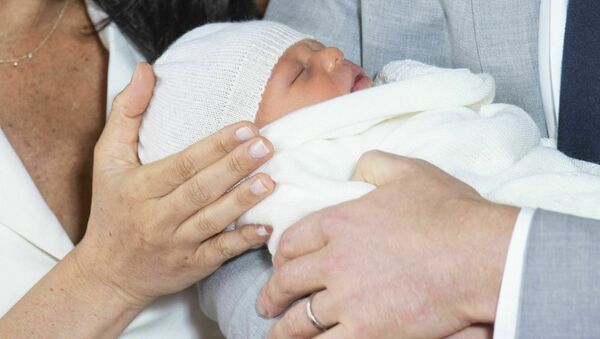It’s worth mentioning from the start that all three possibilities –UK nationality, American, or dual citizenship — may all be on the table as entirely plausible.
This is because, first, the royal couple’s son is entitled to automatically become a British national by virtue of Prince Harry’s citizenship, coupled with being born in the UK; and second, assuming that Meghan hasn’t voluntarily ditched her US citizenship, as she didn’t need to do so in order to marry into the British royal family, the baby could likewise be granted US citizenship based on her status.
According to the US Department of State, in order for a child who was born abroad to a US citizen parent married to a non-US citizen to claim American citizenship, then the US parent must have lived in the United States for at least five years, and two of the five must have been after the age of 14.
If the royal couple decides in favour of dual citizenship, the birth of little Archie must be reported to an American consulate so that he can later obtain citizenship. US law doesn’t officially recognise dual citizenship, although it doesn’t formally prohibit it either. It is stated in black and white on the Department of State’s website that a US citizen’s naturalisation in a “foreign state” doesn’t jeopardise his or her citizenship, unless the person in question may personally wish to give up his or her citizenship”.
“Intent may be shown by the person’s statements and conduct”, the site continues, detailing the procedure to comply with:
“In order to relinquish US nationality by virtue of naturalization as a citizen of a foreign state, the law requires that the person must apply for the foreign nationality voluntarily and with the intention to relinquish US nationality”.
Meanwhile, royal fans’ doubts concerning whether the baby’s British nationality would be preserved if the parents hurl all effort into requesting US citizenship for him, are effectively busted by the respective section of the Gov.uk website:
“You do not need to apply for dual citizenship. You can apply for foreign citizenship and keep your British citizenship”. However, it warns that not all countries accept dual citizenship, urging citizens, including EU nationals living in the UK, to check their cases against the list, particularly with regard to the approaching Brexit.
While Baby Sussex’s dual citizenship is more than probable, royal fans claim, there is something that my put the parents off – US tax laws stipulating that “if you are a US citizen or resident alien, you must report income from all sources within and outside of the US”.
The provision means that the their son’s assets, including those potentially granted to him by his royal parents or that he will become signatory to, will have to be reported to the IRS and carry significant tax bills, which will potentially footed by British taxpayers.
IRS checks may also potentially reach out to Prince Harry’s and even the Queen’s finances. Meghan, meanwhile, might have already become a signatory to her husband’s accounts, with Harry known to have partly inherited a £20 million trust fund from Princess Diana and the Queen Mother, which he draws his private wealth from — a yearly £300,000, on which he pays UK income tax, media reported.
READ MORE: Royal Baby Extravaganza: Meghan Markle's Most Discussed Pregnancy Tribulations
Earlier, much before the Sussexes welcomed their bundle of joy, multiple media outlets, including the Sunday Express, mentioned, citing their sources, that the royal family is facing the “worst” financial “nightmare”.
They assumed it may presuppose that even priceless jewellery items presented to Markle by the Queen and Prince Harry, as well the grace-and-favour Nottingham Cottage, on the grounds of Kensington Palace, where the couple currently resides, and even leased cars, could be closely scrutinized by US Internal Revenue Service officials.




